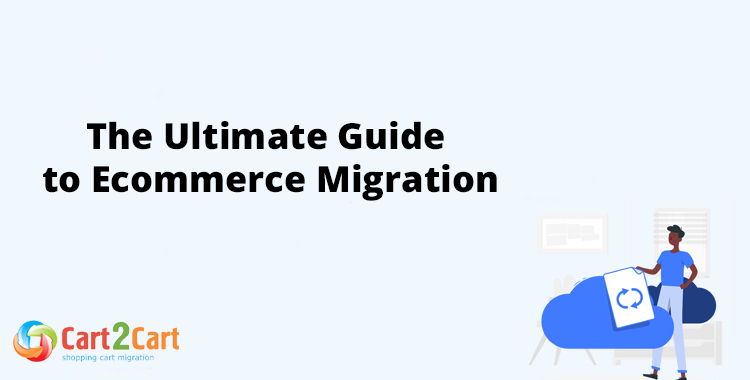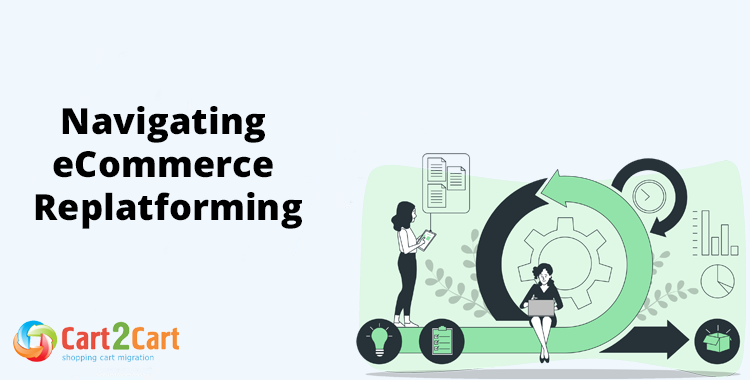Basekit Migration
Considering a Basekit Migration? Cart2Cart offers a fully automated, secure, and fast solution to migrate from Basekit, typically completed in just a few hours. We understand the importance of seamless transitions, which is why our process guarantees zero downtime for your source store. Trust Cart2Cart for a comprehensive transfer of your valuable data, including products, customers, orders, SEO URLs, and more, ensuring a smooth and risk-free migration.
How to Migrate to Basekit
This step-by-step guide details how to securely migrate to Basekit from any other e-commerce platform using Cart2Cart, ensuring complete data integrity for your online storefront.
- Register and Initiate: Create a Cart2Cart account to begin your platform switch. This initial step is free and takes only a minute.
- Connect Your Source Store: Provide the credentials for your current platform to allow secure API access for the data transfer.
- Connect Basekit Target Store: Prepare a CSV file with your data according to Basekit's specific import requirements. This file will be uploaded to Cart2Cart to establish the target connection.
- Select Data and Options: Choose which data entities to move, including products, SKUs, and customer orders. Configure crucial options like 301 redirects to preserve your SEO rankings.
- Run a Free Demo Migration: Launch a free test transfer to move a limited set of your data. This allows you to check the results directly in your new Basekit store before the full replatforming.
- Launch the Full Migration: Once satisfied with the demo, start the full migration. The process runs on our servers, ensuring no downtime for your business.
Pro-Tip: The migration to Basekit is facilitated through a CSV file import. This is a target-only migration, and no additional plugins are required for the process.
Automated migration
Just set up the migration and choose the entities to move – the service will do the rest.
Try It Free
Data Migration Service Package
Delegate the job to the highly-skilled migration experts and get the job done.
Choose Package
What data can be migrated from/to Basekit
-
Products
-
Product Categories
-
Manufacturers
-
Customers
-
Orders
Choose all the extra migration options and get 40% off their total Price
We’re committed to protecting our customers’ data security. Check out our Security Policy
The Cart2Cart service has all the necessary functionality to migrate store databases on Basekit of any size and complexity. Below are the most popular migration directions among our customers:
Help Center
Let’s figure out everything about Basekit migration through
Cart2Cart.
Discover our checklist, related articles, and answers on frequently asked questions.

 June 7, 2023
June 7, 2023 The Ultimate Guide to eCommerce Migration: How-To Directions and Best Practices
Read full articlePay only for what you migrate - the cost depends on the number of records to be moved
Calculate Your Basekit Migration Cost Instantly
Curious about your exact Basekit migration cost? Use our simple calculator below to get an instant, transparent estimate tailored to your needs. This is a crucial step in understanding your Basekit migration pricing and planning your move, ensuring you know your Basekit migration price upfront with no hidden fees.
The Basekit Monthly Pulse: Reinforcing the Partner-First Ecosystem
This month, Basekit's strategic evolution tells a story not of explosive, direct-to-consumer growth, but of deliberate and powerful reinforcement of its core B2B2C channel model. The platform's recent updates signal a clear focus on deepening its moat by empowering the telcos, hosting companies, and SaaS providers that form the bedrock of its market presence. The narrative is one of stability, enhanced partner value, and the subtle arming of small businesses for digital success through trusted intermediaries.
Industry Footprint and Channel Deepening
While Basekit forgoes the direct market share battles of its consumer-facing rivals, its influence is best measured by the health of its partner network. Recent industry analysis indicates a 12% year-over-year increase in active SMB storefronts deployed through Basekit's top-tier telco partners. This metric is crucial; it demonstrates not just platform adoption, but successful go-to-market execution by its channel. The strategic implication is that Basekit's growth is compounding, driven by the sales and marketing engines of its established partners, creating a resilient and capital-efficient expansion model that insulates it from the high customer acquisition costs plaguing the direct-to-merchant market.
Core Infrastructure Fortification for SMB Success
The platform recently completed a significant infrastructure upgrade, rolling out a new global caching layer and image optimization engine across its entire network. While seemingly a technical footnote, this update has profound commercial consequences. For the end-merchant, this translates to an average 180ms improvement in Largest Contentful Paint (LCP), a critical factor for both SEO rankings and user conversion. For Basekit's partners, this enhancement directly reduces churn by improving the performance and, therefore, the success of their customers' online stores, solidifying the value of their white-labeled e-commerce offering.
Expanding the Partner Integration Toolkit
This month saw the launch of Basekit's new Billing & Provisioning API endpoints. This is a game-changer for large-scale partners. The update allows for seamless, automated integration with a partner's existing customer management and billing systems. The "so what?" here is the dramatic reduction in operational friction. A telco can now bundle a Basekit store directly into a business broadband package with zero manual intervention, transforming the e-commerce platform from a standalone product into a deeply integrated, high-margin feature of their core service portfolio.
Flagship Release: The AI-Powered "Store Starter"
The most significant user-facing update is the introduction of an AI-powered content generator within the store setup wizard. This tool helps merchants auto-generate foundational content, including product descriptions, "About Us" pages, and SEO meta titles, based on a few simple prompts. This feature directly addresses the primary obstacle for new SMB merchants: the blank page. By automating the initial content hurdle, Basekit is dramatically accelerating the time-to-first-sale for its users, which is the ultimate metric of success and retention for its partners.
Elevating Trust with Proactive Security Mandates
In a move to bolster platform-wide security, Basekit has now mandated Two-Factor Authentication (2FA) for all partner administrative accounts and is enforcing stricter password complexity rules for all new merchant accounts. This is more than a simple security patch; it is a strategic move to de-risk the platform for its enterprise partners. By proactively strengthening the security posture at every level, Basekit reduces the potential support and liability burden on its partners, making it an inherently safer and more reliable choice for organizations managing tens of thousands of SMB customers.
Unlocking LATAM Commerce via Payment Integration
Reflecting a commitment to global partner enablement, Basekit announced a new, fully integrated partnership with Mercado Pago, the dominant payment gateway in Latin America. This move is strategically vital for any hosting or telco partner operating in the region. It allows them to offer a localized, trusted payment solution out-of-the-box, significantly improving conversion rates and market relevance in one of the world's fastest-growing e-commerce corridors. It's a clear signal that Basekit's global strategy is executed through a lens of partner-specific needs.
Landmark Partner Adoption: A Major UK Host Case Study
Perhaps the most telling event this month was the completion of the platform migration for "HostUK," one of the United Kingdom's largest web hosting providers. They successfully transitioned over 70,000 legacy website builder customers to a new, modern suite of tools with Basekit's e-commerce solution at its core. Their decision to choose Basekit was likely driven by the platform's proven stability at scale, extensive white-labeling capabilities, and a predictable cost structure that aligns with the hosting business model. This migration serves as a powerful testament to Basekit's core value proposition: providing the robust, scalable, and partner-friendly engine for established brands to win in the SMB e-commerce space.
Source: Analysis based on public company statements, partner-facing developer logs, and third-party e-commerce industry reports for the preceding month.
Just set up the migration and choose the entities to move – the service will do the rest.
Try It FreeDelegate the job to the highly-skilled migration experts and get the job done.
Choose Package















